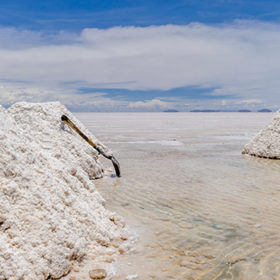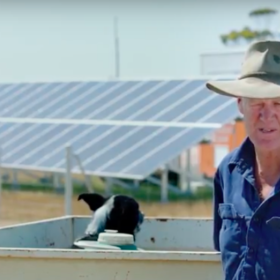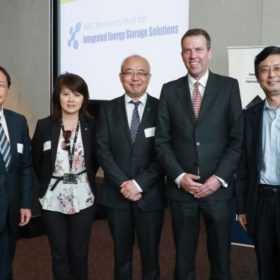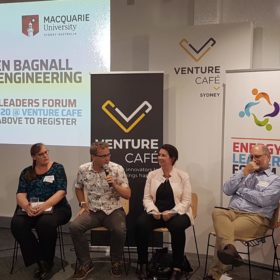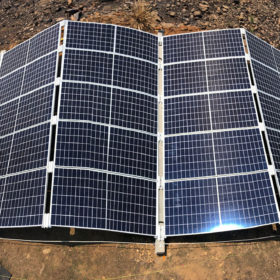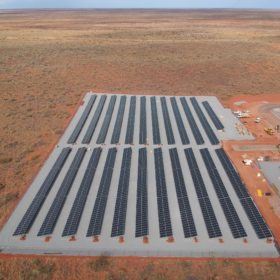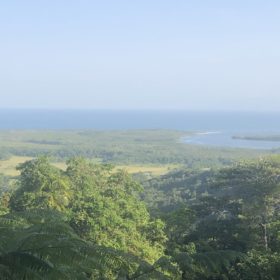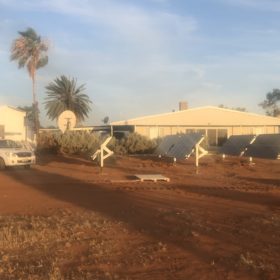Monash researchers make lithium extraction breakthrough
Monash University-led researchers have made a discovery that will dramatically reduce lithium-from-brine extraction times and accelerate our energy future. The breakthrough, innovative and ingenious, is as simple and as complex as a sieve.
Western Power launches Round 2 of stand-alone power system rollout
The Western Australian government-owned utility is continuing the rollout of its landmark off-grid program for regional properties looking to reduce or entirely remove the need for new poles and wires.
Energy storage research hub launched at UNSW
The ARC Research Hub for Integrated Energy Storage Solutions has a broad research mandate as it looks for innovative energy storage solutions for the energy transition, but some of the nation’s finest minds are now working on them together.
Blockchain, butchers’ paper and US$100 trillion: Energy Leaders Forum revs up net-zero by 2050
The debate now stewing in the Australian Parliament around the viability and cost of setting a target of net-zero emissions by 2050 is again proving a case of too little vision applied too late. A new forum casts all participants as “leaders” and as it seeks to accelerate emissions reduction opportunities today.
Queensland supercomputer to test seamless integration of renewables on and off the grid
A world-class research and development hub planned for Cairns will be home to a supercomputer that will be used to simulate and model intricate networks in order to enable renewable energy and energy storage to form a greater part of microgrids and isolated systems for remote communities.
Mike Cannon-Brookes, 5B Solar and Tesla to bring power to bushfire communities
A new venture funded by the Cannon-Brookes family is looking to install stand-alone solar and battery systems at up to 100 sites around Australia affected by recent bushfires and floods.
Microgrid management technology hard at work in Onslow
PXiSE says its microgrid controller technology is successfully managing the output of a solar farm and a grid-scale battery in coordination with a gas power station in the coastal town of Onslow. It now readies for the next stages of deployment of its software solution across Horizon Power’s network.
Daintree solar to hydrogen microgrid closing on reality
An Australian-first solar to hydrogen-based microgrid for the World Heritage Protected Daintree Rainforest is another step closer to reality this week after Federal Leichhardt MP Warren Entsch revealed the feasibility study funded by the Federal Government last year is “on track”.
UNSW students and solar PV in remote Vanuatuan communities
UNSW student groups have been visiting Tanna Island in Vanuatu for over a decade. The solar PV solutions they’ve brought with them have helped many communities, but since Cyclone Pam tore through the region in 2015, sustainable solar is more important more than ever.
Solar and batteries slash costs at off-grid WA cattle station
With the help of solar PV and zinc-bromine batteries, a cattle station located in the dry Murchison region northeast of Geraldton will save as much as $10,000 a year in diesel costs.
